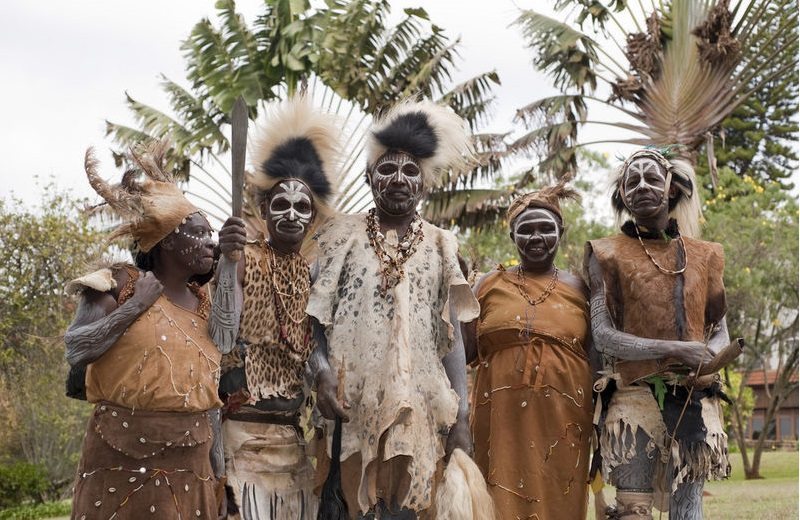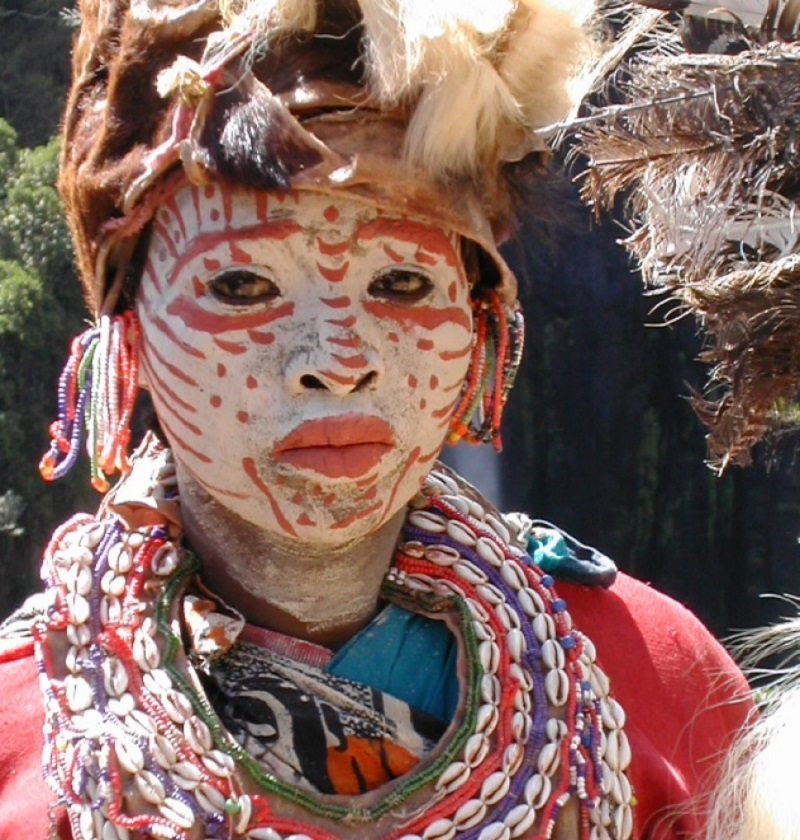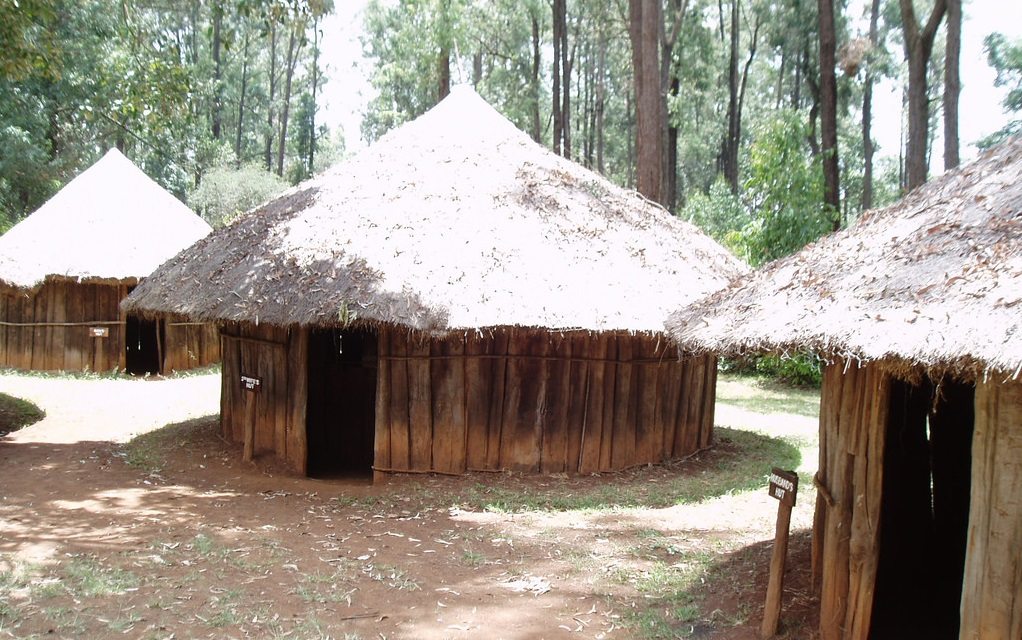Kenya is a country in East Africa made up of diverse people speaking different languages and practising different cultures. One of them is the Kikuyu Tribe who are from a group of people called Bantu that inhabits the East African region. The Kikuyus are great people with very dynamic culture, and we bet you’d love to know more about them.
The People of Kikuyu
The Kikuyu People are the biggest ethnic group in the East African country with a population of about 6,623,000 which makes up 23% of Kenya’s total population. This group of people are mainly concentrated around Mount Kenya which is a highland area in the South-Central part of Kenya.
It is not known from which part, in particular, the Kikuyu ancestors migrated from in West Africa. However, the Kikuyus are said to have a founder, a man called Gikuyu and his wife, Mumbi who were created by God and put in a place full of wild fig trees; that place is held sacred by the Kikuyu people to this day. ‘Gikuyu’ is the same as ‘Kikuyu’ in Swahili. Gikuyu and Mumbi had nine daughters who got married and started families from which 9 clans of the Kikuyu tribe were formed.

The Kikuyus are organized into age sets which have been the basis of political associates. From these age sets, groups of boys get initiated every year and grouped into sets of generations that ruled 20 to 30 years traditionally. The people also have a council of elders who are the leaders in the community. These are respected among the people and they give direction in matters concerning their culture and values.
The Kikuyu Tribe has over the years, produced very influential and notable personalities in Kenya. Three out of the four presidents that have ruled Kenya since after independence were all from Kikuyu. Notable Kenyans from Kikuyu include among others:
- Jomo Kenyatta, the first president of Kenya who was among those in the front line in the liberation of Kenya from British rule.
- Mwai Kibaki, the third president of Kenya
- Kenya Uhuru Kenyatta, the incumbent President of Kenya
- Patrick Ngugi Njoroge, Governor of the Central Bank of Kenya
- Johnson Gicheru, former Chief Justice of Kenya
- Wangari Mathai, late Nobel Peace Prize Laureate
- Ngugi Wa Thiong’o, famous novelist of African literature
- Dedan Kimathi, late popular freedom fighter
- Tom Morello, Grammy winner guitarist
- Stella Mwangi, popular Kenyan-Norwegian musician
Read Also: Love Messages, Family Quotes, Ethiopian Food, Bible Verses About Love
The Kikuyu Language and Music
The Kikuyu people speak their mother tongue, the Kikuyu language which they have a great love for. Although Kenya has two national languages; English and Kiswahili (same as Swahili), Kikuyu is considered to be the third due to its popularity all over the country.
The original music of native Kikuyus is believed to be extinct. What is mostly available now is its recreation which embraces modern styles to accommodate present-day listeners.
Some of the most prominent Kikuyu music include Mugithi, Ketebul, Benga, and Kukiyi country. Mugithi is a type of country-style music that originated from the Kikuyus, usually accompanied by guitars and danced in a line. As for the lyrics of Mugithi, it always centres on the society and politics. The music is mostly used at ceremonies and clubs and is enjoyed not only in Kenya but in some other countries where Kenyans have migrated to.
Kikuyu Women
Kikuyu women are largely known to be beautiful, hardworking, confident and self-reliant , economically and otherwise. However, these qualities are said to be sometimes misinterpreted to mean lack of submissiveness to the men, thus earning them a negative stereotype that leaves some of them unmarried. Even when they are married, it is also said to have led to divorce on many occasions, with a good number of Kikuyu women noted to be single mothers.

Traditionally, when a Kikuyu woman is married, she moves to the clan of the husband and all the children she will bear also belong to the clan, with the first children named after the husband’s parents, and subsequent ones named after brothers, sisters and grandparents.
Houses
The Kikuyu tribe live in large round hut-like houses referred to as ‘nyumba’, having only one entrance.

In Kikuyu, each family lives together in what is commonly known as a homestead. Men and women live in different houses, and two married women cannot inhabit one house. Once a woman is married, a house called ‘Nyumba’ (capitalized as against the general name for a house which starts in lower case) is built for her in her husband’s homestead. In it, she lives together with her children and yet-to-be-married girls.
On the other hand, a man’s house whether married or not is referred to as ‘thingira’, and once a man is married, he leaves his parents’ compound to form his own.
Kikuyu Facts
Religion: The Kikuyus believe in their creator, God who they call Ngai and also in the spiritual presence of their ancestors. The people are also superstitious, with many of them retaining some practices like the taboo against whistling, unlucky numbers such as 10, and so on. However, the majority of Kikuyus are now Christians.
Food and Dishes: The Kikuyushave traditional foods such as potatoes; dishes made from beans, for example, ‘Irio’ which is a combination of maize, beans, and potatoes mashed together; vegetables and the Kenyan national dish, Nyama Choma which is roasted beef. They also love tea which is served with most meals.
Occupation: The Kikuyus are known for their industrious nature. Their main economic activity is agriculture which is introduced to the children at an early age. They grow many crops including bananas, sugarcane, millet, maize, beans and vegetables. They also grow cash crops such as tea and coffee in large scale, and also keep livestock.
Besides agriculture, the Kikuyu people have great taste in artefacts and art like statues carved by use of hands, jewellery made of beads and African sarongs which they sell locally and internationally. They also embrace music and dancing which they also use to preserve their history. Different dances have symbolic meaning like warrior dances, dances of love, dances for welcoming and so forth.
In addition, the Kikuyu people are also involved in business and are seen as the pillar of the Kenyan economy. Over time, Kikuyus have embraced change, and education is now a priority for the majority of Kikuyus and their children.